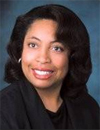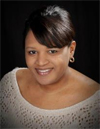 Many writers feel like they don’t have a lot of power or influence. Especially if you are just trying to get into print with a book or magazine articles, you may be receiving a number of rejection letters. All of us receive rejection letters—whether we’ve written nothing or many things. It’s simply a part of the publishing business and not a judgment on you as a person.
Many writers feel like they don’t have a lot of power or influence. Especially if you are just trying to get into print with a book or magazine articles, you may be receiving a number of rejection letters. All of us receive rejection letters—whether we’ve written nothing or many things. It’s simply a part of the publishing business and not a judgment on you as a person.
I want to encourage you to seize your writing power. What power? I’m talking about your influence as a writer. Whether you have no email list and only a few Facebook friends and only a few Twitter followers, you are a person of influence.
Recently I was reading Facebook and spotted a blog post entry from one of my writing friends, I went to the article, read it and liked it. So I took a few seconds and cut and pasted the title along with the author’s name into my Twitter account. I included the link to the article and sent out a tweet. Most of my tweets also show up on my Facebook page.
The whole process from start to finish took me two or three minutes. I didn’t give it a lot of thought but just took action and sent it out, then went on to something else.
A day later, I received an email from this author. Part of it said, “Just so you know the impact you have, right after you tweeted about it the views spiked and yesterday was my blog’s highest viewed day in months. Thanks for the boost.”
I found this news amazing since I put little stock in my actions. Yet I had used my writing power with that tweet. You have it as well. Are you using it?
You may not have written books but hopefully you are reading books. What do you do after you have read the book? Do you use your writing power? One simple way to use it is to write a few sentences of review about the book and post it on Amazon. When you take action and write a review, you are using your influence. I’ve written over 400 customer reviews on Amazon. No one pays me to write these reviews yet it is a way to use my power as a writer.
After you have written the review, I encourage you to tell your friends about your review. Every review has a “permanent link” on Amazon. You can use that link to tout your review to your Facebook friends or on Twitter or any other social media network. You will be surprised but taking these simple actions will influence others about good books to read.
I noticed my Book Proposals That Sell had another Five Star Amazon review. I quickly tweeted, “My Book Proposals That Sell received the 112th Five Star Review on Amazon today: http://amzn.to/NuYJIU I’m glad the book helps many people”
Words have immense power to heal and help others. I encourage you to seize your writing power and take action today.
________________________________________
W. Terry Whalin, a writer and acquisitions editor at Morgan James Publishing, lives in Irvine, California. He has written more than 60 nonfiction books including Jumpstart Your Publishing Dreams. His website is located at: www.terrywhalin.com.
If you found this post helpful, please use the Share buttons to spread the word about it.
Don’t have a copy of Become A Successful Author? What are you waiting for?Become A Successful Author is used in the “How To Write That Novel” course at Chicago State because it covers everything from branding to writing to editing to formatting and uploading electronic and print books to marketing and so much more. Your time is money. Look at all the time, thus money, you’ll save by ending your search for answers: Purchase Become A Successful Author for only $4.99 (eBook) or$9.99(print) from: Amazon (US), Amazon (UK), Barnes & Noble







